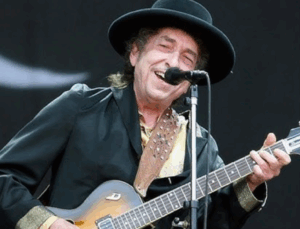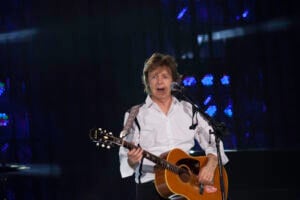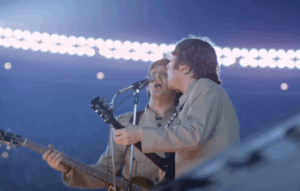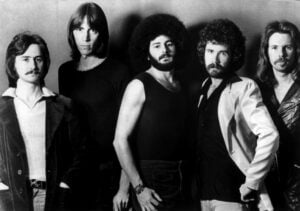2 Bands That Can Replace The Beatles If They Never Existed
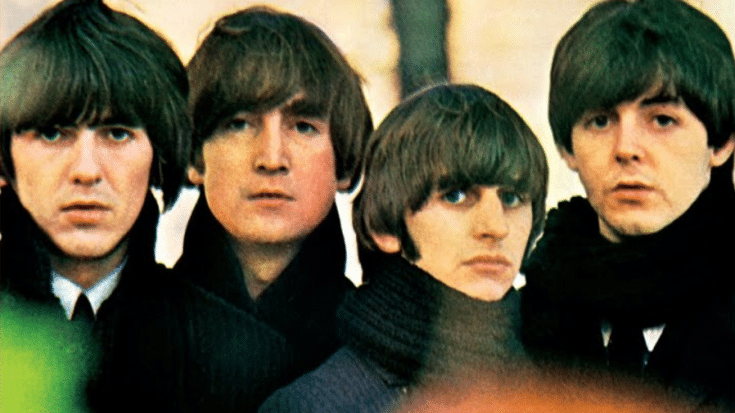
via The Beatles / YouTube
On February 7th, 1964, The Beatles arrived in the United States for what would be a monumental trip, forever changing the music landscape. As they landed, John Lennon was a bit anxious, worrying that his outspoken comments on civil rights might label him a communist in the eyes of the American media. But as soon as the plane doors opened and the band was met by the overwhelming excitement of fans, it became clear their lives—and music history—were about to be transformed.
The British Invasion Begins
The Beatles ignited what would come to be known as “the British Invasion.” With the massive success of their hit “I Want to Hold Your Hand” and two triumphant performances on The Ed Sullivan Show, the Fab Four became a sensation in America. The buzz around the long-haired lads from Liverpool was non-stop, and they paved the way for a wave of British bands to find success across the pond.
E Street Band guitarist Steve Van Zandt recalled the immediate impact:
“The floodgates opened. It transformed America. On February 8th, there were no bands in America; on February 9th, we had Ed Sullivan, and on February 10th, everybody had a band in their garage. It was literally overnight.”
More Than Just a Band
The Beatles are often hailed as the most influential band of all time, not just for their incredible music but for completely changing the face of the industry. One of their biggest contributions was opening the door for British artists to make it in America. Before The Beatles, a few British acts, like Billy J. Kramer and Cliff Richard, had achieved mild success in the States, but none had managed the staying power or cultural impact The Beatles did.
Rolling Stones manager Andrew Loog Oldham put it best:
“There was no real future for a British band before The Beatles appeared on the Ed Sullivan Show in February 1964. That was the turning point, after which there was an avalanche. In music, there is The Beatles, and then there is everybody else.”
Could Another Band Have Filled The Beatles’ Shoes?
It raises an interesting question: if The Beatles had never existed, could another band have stepped up to fill their shoes? Their appearance on The Ed Sullivan Show paved the way for many British bands, but could one of them have made it big without the Fab Four leading the charge?
The Rolling Stones
Many might argue that The Rolling Stones could have led the British Invasion. Their sound, heavily influenced by blues and R&B, was distinct from The Beatles’ pop-rock style. It’s likely their music would have crossed the Atlantic regardless of The Beatles’ success. However, Oldham disagrees. Even though The Rolling Stones are now considered one of the greatest bands of all time, Oldham notes that, at the time, they weren’t leading the pack. In his view, other bands like The Dave Clark Five and Herman’s Hermits were more in sync with the changing musical tide.
“The Rolling Stones got there long after The Beatles, The Dave Clark Five, and Herman’s Hermits,” Oldham noted. “They were the pioneers. If The Beatles ever looked over their shoulders, The Rolling Stones were not the first thing they saw—it was The Dave Clark Five.”
The Dave Clark Five
It’s possible that, in The Beatles’ absence, The Dave Clark Five could have been the ones to jumpstart the British Invasion. But as Michael D’Addario of The Lemon Twigs pointed out, The Beatles’ rise wasn’t just about their music—it was about the perfect timing and circumstances.
“The Beatles were such a finite thing. I wouldn’t wanna model my career after them because it’s such a moment in time and combustible.”
Even if another band could have launched the British Invasion, it’s hard to imagine they would have had the same revolutionary impact. The Beatles didn’t just break into America—they continuously pushed boundaries, evolving with every album and reshaping the music scene in ways that still resonate today.
In the end, The Beatles were irreplaceable, and we can only be grateful that they decided to make the journey to America and start a musical revolution that shaped the industry.







